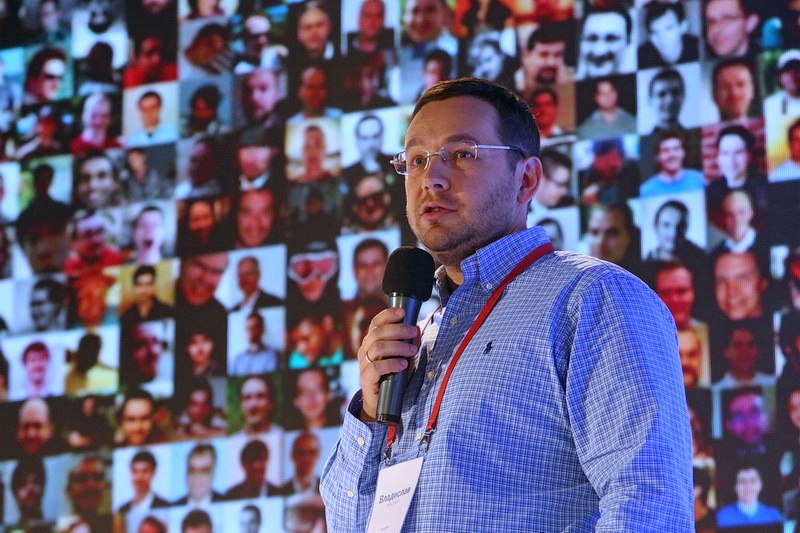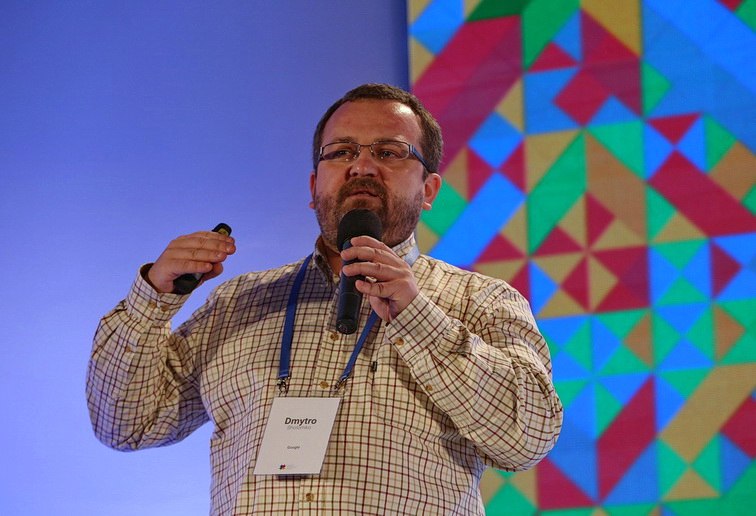While even small shops in the United States and Europe now have their own websites, Ukrainian businesspeople only started taking their businesses online recently.
So to help Ukraine catch up, U.S. tech giant Google gathered hundreds of Ukrainian businessmen and civil activists in Kyiv on Nov. 11 to learn of the company’s view on worldwide trends, demonstrate successful examples of running an online business in Ukraine, and talk about the country’s digital transformation.
Among the famous Ukrainian brands that made presentations at the conference was Indigo Wood, a furniture manufacturing company, MacPaw, a cleaning software developer, Rozetka, the biggest Ukrainian e-retailer specializing in electronics, Promodo, an online marketing company, and SoftServe, an IT company specializing in software product development.
All of the companies expressed gratitude for Google’s free and paid services, such as AdWord, an online advertising service, Google Business, a service that helps businesses put information on Google Search and Maps, and Google Analytics, a web analytics service.
According to Ivan Kuziv, a MacPaw marketing specialist, the online services provided by Google give Ukrainian companies the chance to trade worldwide. “Google gave us AdWords and helped us to localize our websites in different countries,” he said. “It gave us an opportunity to access global markets.”
E-commerce firms specializing in selling goods via the Internet also benefit from these services. By using ready-made platforms, they can start their business with minimum seed capital. Promodo, Rozetka, Indigo Wood and many other e-retailers had few staff at the beginning, and were able to use Internet services to make up for the staff shortfall.
“We’re not Google, but we exist because of Google,” said Vladyslav Chechotkin, Rozetka’s founder and CEO. “The Internet creates demand, the Internet rules demand. YouTube can explain more than a guy (consultant) in a shop. We appeared out of nowhere due to information technology.”
Vladislav Chechetkin, Rozetka CEO, delivers his speech about running business online during Google conference in Kyiv on Nov. 11, 2015
Oleksandra Panasyuk, the founder of DreamKyiv, said that Ukraine should use technologies to interconnect real and online life, which can coordinate people and make them proactive. “Modern technologies give people a chance to change something in their lives, they provide the tools for that. It makes people active,” Panasyuk told the Kyiv Post. “The only thing left to do is put your shoulder to the wheel.”
Ksenia Shumelchik, a Google Anita Borg Scholarship holder and an Android developer at SoftServe, said creating platforms on the web can make people in Ukraine prosper. “This is the opportunity to transform Ukraine, it’ a huge possibility to integrate into world’s trends, and, of course, a way to make our society more progressive,” said Shumelchik, who was wearing a Google Glass headset. “It will raise people’s lives to a higher level.”
“It is an opportunity to create a business out of nothing,” Rozetka’s Chechotkin told the Kyiv Post. “Shopping centers spend an enormous amount of money every day on maintenance, but they usually have the same number of customers as Rozetka has online, or even less.”
Dmytro Sholomko, director Google Ukraine, speaks during the conference held by Google in Kyiv on Nov. 11.
Director Google Ukraine Dmytro Sholomko also thinks Ukraine will only win if it encourages more people to explore the online possibilities the Internet provides.
“For me this is the process of ‘upgrading’ any part of social and business life with the new approach based on technologies and innovations, and thus a huge chance for Ukraine, it’s business and society to embrace new things and thus become a better place to live ” Sholomko told the Kyiv post.
Kyiv Post staff writer Denys Krasnikov can be reached at [email protected]. The Kyiv Post’s IT coverage is sponsored by Looksery, Ciklum, Steltec Capital and SoftServe. The content is independent of the donors.


